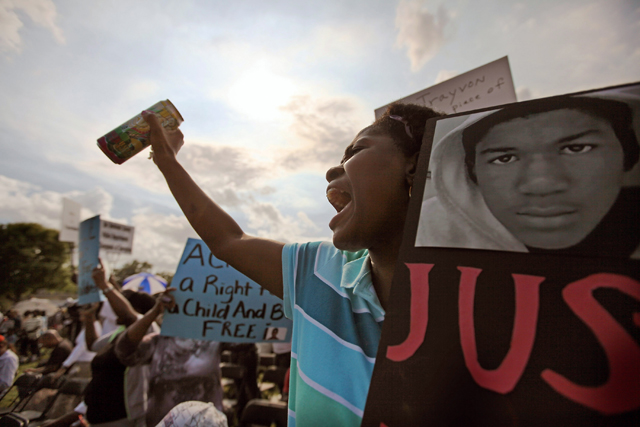The night the George Zimmerman verdict was announced, I was at a karaoke bar on the Berkeley/Oakland border called Nick's. On the TVs, Lincecum pitched a no-hitter. The actor who plays Finn on Glee was found dead in a hotel room. News poured in about protests in Oakland, and it was impossible to tell to what degree the violence of the protests was being exaggerated, whether or not incidents were being taken out of context. A mixed-race group of people on one end of the bar seemed to be getting pretty contentious: a guy slammed his hand down on the bar and I thought I heard the woman accompanying him say, "You have to stop it."
Most nights the crowd is like any other karaoke bar: there are regulars performing the same songs they always perform, and there are dates and birthday parties trying out new songs, either confidently or fumblingly. But I've heard people say Nick's used to be a primarily African-American hangout, and sort of a swanky one, back when the times and the neighborhood were a little different. An older black man in a brightly-colored three-piece suit once told me in the bathroom that he would wear such an outfit to Nick's 30 years ago and be underdressed. One wall of Nick's features images of Billie Holiday and Charlie Parker, and some nights a jazz band performs.
The plan on this particular night was to perform "Juicy" by Notorious B.I.G. -- I would rap, and my cousin Theo would sing the hook. We had discussed this days ago, but now I had some minor reservations. I rap at karaoke to be funny. It's cultural appropriation, but in the name of making fun of myself -- it highlights what a dork I am, and whites and African-Americans at Nick's find it amusing and tell me so.
The karaoke jockey, or KJ, working that night looked like Huell from Breaking Bad and has a grumpy demeanor. A few minutes after I turned in my request for "Juicy," Huell's look-alike approached me and simply said, "You can't do this song. Pick another song." I didn't ask why. I was sure it had to do with the use of the "n"-word in the chorus. Of course I wasn't going to say that part, but maybe tonight the idea of someone like me going up and acting like a slain black cultural figure for a laugh felt like too much for the KJ. I understood, but I was still hurt.
Because I'm a narcissistic brat, I kept thinking of songs I could sing that might serve as needling responses to this rule: "Without Me," by Eminem, say. I wouldn't really do that either, except nothing I thought of was more offensive than when someone went up and sang, I kid you not, "Pretty Fly for a White Guy" by The Offspring. "Pretty Fly for a White Guy" is actually a scathing take down of cultural appropriation, but it still seemed a much more insensitive choice than "Juicy." I was upset, but my anger subsided when a friend said "Juicy" specifically had been banned because white kids a week or so ago performed it and wouldn't stop singing the "n" word part.


